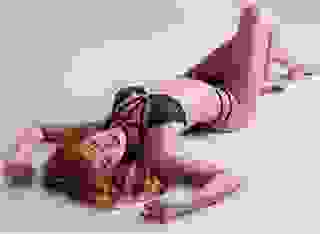Note: You can change font size, font face, and turn on dark mode by clicking the "A" icon tab in the Story Info Box.
You can temporarily switch back to a Classic Literotica® experience during our ongoing public Beta testing. Please consider leaving feedback on issues you experience or suggest improvements.
Click here"Approach the witnesses with some adroit discretion." I said. "I'm willing to bet that house is empty and unsold because of the continuing nature of this case, and the people involved are more than tired of hearing questions about it."
* * * * * * * * * * * * * * * *
"Come in, come in." said Dr. Sidney P. Wellman, president of the University, as he rose from his chair behind his desk in his office, coming around to greet his visitor. "May I get you some coffee or juice?"
"Thank you, Mr. President," said Thomas Riordan, wealthy booster for the University and it's sports teams, "but I've already eaten breakfast."
"Splendid." said Wellman. "Have a seat, have a seat." He returned to his chair as Riordan sat down in the comfortable chair to the side of the desk... the chair Henry R. Wargrave had sat in many, many times.
"I know Henry Wargrave was a friend of yours, Dr. Wellman." said Riordan, as if reading Wellman's mind, "Please accept my condolences upon his loss."
"Yes, it was deeply painful for my wife and myself," said Wellman, "as well as to our great University. Fortunately, men such as yourself are filling the void he has left."
"Yes," said Riordan, "it's an honor to be able to continue his great legacy on behalf of the University. As you know, I've been named one of the Trustees of the Wargrave Charitable Trusts that will continue to serve the University for years to come."
"Ah yes, I do know." said Wellman. "Mr. Thomas P. Cook, a Town Councilman, and Mr. Austin R. Murphy, one of our University Regents, have also been named to it. A truly strong group of leaders. So, what can I do for you this morning?"
"I came to tell you of some very interesting developments I have learned." said Riordan. "For example, Commander Troy gave Detective Leonard Sharples, a.k.a. 'Sergeant Sharples', the assignment of looking into an old but ongoing child trafficking case. Unfortunately, Sharples is making progress in that case, and made connections to the ring's Texas pipeline."
"That is interesting." said Wellman. "But certainly Detective Sharples's local jurisdiction does not apply to Texas?"
"No, indeed." said Riordan. "But the Iron Crowbar can hand the ball off to the FBI. They were pissed at him about Wargrave's untimely and, dare I say it, suspicious death. This gift would appease their anger. Greatly."
"Yes, it would." said Wellman sourly. Indeed, he was no fool and had surmised how Wargrave's death had occurred. The Iron Crowbar and his loyal blonde pitbull would pay for Wargrave's death, he thought to himself.
"And in other news, Governor Jared has focused the Iron Crowbar's attention upon the disappearance of of two people nearly seven years ago. The Reems & Berry Life Insurance Company is concerned."
"Ah, indeed." said Wellman. "I remember that disappearance case. It will be a tough one for even the great Iron Crowbar to solve, wouldn't you say?"
"Knowing that man, Mr. President... one never knows." said Riordan.
"Well," said Wellman, "you'll just have to... er, monitor... the Iron Crowbar's progress. The Governor and former Chief Griswold were very good friends, and it appears the Governor is drawing the Iron Crowbar into his... circle of influence, shall we say. That could be a... devastating combination if we're not careful."
"Yes sir, Mr. President." said Riordan. "Of course, sir, you have a leash on Commander Troy, what with his wife working at your University and all..."
The look Wellman gave him sent a shock wave of queasiness through Riordan's stomach.
"Tom," said Wellman, "there are some things you're going to learn as your University patronage career develops. One of those is that Dr. Laura Fredricson is absolutely untouchable. I'd rather take ten beatings from Commander Troy's crowbar than have to come up against her even once. Best you heed this advice, my friend..."
"Yes sir." said Riordan, absorbing the lesson...
* * * * * * * * * * * * * * * *
"Come on in, gentlemen." said Cpt. Cindy Ross. Sergeant Briscoe and Senior Patrolman Cole came into the main conference room. "Please, have a seat. If you don't know her, this is Detective Phyllis Troy, who is working with me on a case."
After the intros and the police officers being seated, Cindy got right to the point. "We are looking at the cold case of the twin disappearances of Billy Joe Tolson and Bonnie Jean Mason nearly seven years ago. I believe you two were the first officers that responded that night?"
"Yes ma'am, we got there first, then other officers came to the scene." said Briscoe.
"Looks like you were in charge, Sergeant Briscoe?" asked Cindy.
Briscoe replied "Well, Sergeant Charles, now Captain Charles who retired last winter, was the senior officer at the time, but he had me in charge of the scene before a Detective arrived. That was then-Lieutenant Harold Malone."
"Well, we won't be getting much from him." said Cindy. "So, Sgt. Briscoe, I have your notes here, and you can look at them to refresh your memory as you tell me as best you can remember what happened that night."
Briscoe glanced over his notes quickly, then started: "We were called in around 7:00pm for a domestic dispute. When we got there, we found that Art Mason had assaulted Jimmy Tolson, and Jimmy's father Claude had defended his son by punching Mason in the face. We were about to arrest them both, but everyone there started talking about the people that had disappeared."
"We separated Mason and the Tolsons, and kept officers with them from that point on. Mason was downstairs and the Tolsons stayed with an officer in the second floor room, which was called the 'game room'. Art Mason said he'd come over to find his wife, who he thought was in the third floor bedroom, called the 'upstairs room' by everyone, and that he thought she was cheating on him with the college boy Billy Joe Tolson.
"Of course,Cole and I went upstairs, but there was nobody there. We looked under the bed, in the closet, which was totally empty, the bathroom, everywhere, thinking they might have tried to hide when they heard Art Mason coming to catch them. But they were not there. They weren't anywhere."
"No trap doors to the attic?" asked Phyllis.
"No ma'am." said Sr. Patrolman Cole. "I specifically looked for one, even inside the closet. It was all solid ceiling with no possible entrances to the attic."
"Did you try calling their cell phones?" asked Phyllis.
Sergeant Briscoe said "Yes, we did. Calls to their cellphones weren't answered, and we later found Billy Joe's cellphone in his bedroom, and Bonnie Jean's was in her house, in the kitchen."
"And her house was right behind the Tolson's?" Cindy asked.
"Yes, ma'am." said Sgt. Briscoe. "We searched the Mason home some hours later, as a precaution, but found nothing."
"Okay..." Cindy said, "it says in this police report that a... yeah, here it is... a blow-up sex doll was in the attic room."
"Oh yeah, I'd forgotten about that." said Briscoe. "Yeah, there was a deflated, folded up male sex doll under the bed. Considering that people were using the room for sex, I figured it was a prank, or someone had used it in the past. Didn't seem to be important."
"No fingerprints on it?" Cindy asked.
"Several people's." said Briscoe, "but I don't remember that they got a solid one from anyone. Maybe the Crime Lab report has it."
"They did, and they found nothing that matched anyone in any database nor anyone at the scene. No semen or anything like that, either." Cindy said as she looked over the papers in the file.
"And no other sex toys?" asked Phyllis. Briscoe shook his head and Phyllis then said "So you were saying about possible exits..."
"Yes." Briscoe replied. "As I was saying, the Crime Lab brought in sonar, which they'd just acquired, and used it on all the walls of the Tolson house to make sure there were no secret exits from the room. None of it was for any good; both of them were totally gone, disappeared, and we had kids swearing up and down that they never came downstairs out of that room."
"What did you do next?" Cindy asked.
"All the usual stuff, per procedure." said Briscoe. "We interrogated the older adults at the party as well as the younger people, and pretty thoroughly. You can see the notes and affidavits in the file, here. All the stories matched and there were no discrepancies at all. So we put out APBs on the two and called in the FBI's Missing Persons Bureau, and essentially handed it off to them."
"I see." said Cindy. "Senior Patrolman Cole, anything to add to this?"
"No ma'am." said Cole. "I had only been on the Force for a few months. I was in your Academy class, Captain Ross, and we got here about the same time. I basically stayed in the game room with the Tolsons and talked to the people in there."
"If I may," said Phyllis, "how were the Tolsons that evening? How did they act, what were their emotions?"
"Mr. Tolson, Claude, he was pretty upset that Mason had attacked his son, and of course concerned where his other son might be." said Sr. Patrolman Cole. "Jimmy Tolson was kind of irritated, not really upset at anything, but a touch of 'angry', if you know what I mean. I got the feeling... I know I'm not supposed to speculate like this, but I think Jimmy was kind of a wimpy kid, and being manhandled like that in front of other kids his age really humiliated him, and he was bothered by it."
"He was 18 at the time?" Phyllis asked.
"Yes ma'am, I believe that's right." said Cole.
"He said he went upstairs to peek on his big brother and Mrs. Mason, and that he saw them engaged in sexual intercourse, is that right?" Phyllis asked.
"Yes ma'am." said Sergeant Briscoe. "He told me that during questioning some hours later. He also took a polygraph a few days later, and we asked him about that. He passed the polygraph with flying colors, on that and everything else."
"I see." said Phyllis. "Patrolman Cole, you were in the game room all that time. Can you describe it for me?"
"Yes ma'am." said Cole. "It was not a very large room. The door came in at the left side, by the outside wall. There was a window to the outside right there at the left, outside wall. The stairs going up to the upstairs bedroom were right in front of the entry door, right next to that window, and there was a door that you had to open to get to the stairs, which looked like a closet when the door was closed. That door did not open against the wall, but towards the room, so that the view of persons in the room were blocked by that door until it was closed again."
Cole continued: "There was a big TV, big for that time, against the front wall, the wall that contained the door where we came into the room from downstairs. Anyone looking at the TV would be looking towards that front wall, with the window and the door to the upstairs to their right. There was a black leather sofa facing the TV, and a big bean bag chair that was pretty old. Also, there was a desk on the far wall, the wall opposite the TV, that had a lamp and a computer on it. "
"How was the lighting?" asked Phyllis.
"While we were there, the overhead light had been turned on." said Cole." There was a black sheet over the window, though; the kids said that was so they could see the TV better. If the ceiling light and lamp were turned off, it'd be pretty dim in there, though not pitch black until dark, and the computer screen would've given some light, as well."
"Thank you." said Phyllis.
"Gentlemen," said Cindy, "we are about to go look at the house. Would you two mind coming with us?"
Part 4 - The Crime Scene
"This house has stayed on the market for four years." said Leanne Quinlin Gonzales, the hot, tight-bodied, redheaded real estate agent as she opened the door for the officers. "Police and FBI agents kept coming around, and the owners that had bought it from the Towsons finally abandoned it. No one else wants to buy it, but I'm hoping that will change after the seven year wait, and after the insurance company has to pay out when they're declared dead. At least it'll be legally resolved then, and we can move on."
"Where did the Towsons move to?" asked Cindy.
"Oh, they still live in Town, just another subdivision." said Leanne. "They live in the Kensington district now."
"What about the Masons?" asked Phyllis.
"Still in the same house." said Leanne. She led them into the den, which had a window overlooking the back yard. "You can see the back of their house from here. The properties are next to each other."
The four police officers went upstairs to the second floor room, the 'game room'. It was empty now, and the only light was through the window at the left.
"I see that this door opens to the right, towards the room, then the door upstairs opens towards the room." said Phyllis. "That really blocks a lot of the view of anyone coming straight up the stairs from below to the attic room above."
"It sure does." said Cindy. They went forward and up the stairs to the attic room, which turned right alongside the wall of the house. At the top, one was looking to one's right toward the front of the house. A bedframe was still there, the headboard against the far wall (again, toward the front of the house). There was one window, facing the back of the house. Looking out, one saw the backyard below.
"Nice little bedroom." said Phyllis as she looked in the bathroom along the inside wall of the bedroom. "Did Billy Joe use this room while he was at home from college?"
"That's what I understood at the time." said Briscoe. "But I also understood that the 'young adults' would come upstairs for sex during parties. One couple did so about an hour before Billy Joe and Bonnie Jean snuck up here."
"So outside there were parents," Cindy said, more in a tone of thinking out loud, "and the kids, as we're calling these of-age teenagers and college-aged people, were inside on the video games?"
"Yes and no, ma'am." said Sr. Patrolman Cole. Some of the younger people were in here, and some were in other parts of the house or outside. Same with the older people; some men were inside, in the den on the first floor, watching a baseball game. Other men were outside, grilling the steaks and hamburgers. Of course the wives, the mothers of the kids, were having their own chat sessions outside or in the kitchen and living room areas."
Phyllis was looking all around the room. She knocked on the walls of the closet, whose door was to the left of the bathroom door, she tried to look under the bathroom sink, only to find that there were no doors; it was paneled cabinetry, and only the thin sides opened.
"Oh my, nothing but water pipes and the drain pipe. Certainly no room for a person to hide here." Phyllis said.
"Any theories, so far?" asked Cindy.
"No, dear, only eliminated ones, I'm afraid." Phyllis replied. "It is indeed as everyone said: there is only one way out of here, and that's through this stairway and one door. The window is very obvious to the backyard; I cannot see anyone getting out that way without being seen immediately by persons outside, and it would take professional climbers to scale that wall. There are no passages, no hiding places, and I believe the police did do a good job of searching for anyone trying to hide in here."
As they moved to the stairs, Phyllis stopped everyone. "Let me get to the bottom of these stairs before you come down." She descended, then had the others come down until they were all in the game room again.
"Did you hear that?" Phyllis asked.
"Sure did." Cindy said. "Those steps squeak a lot."
"Yes," said Phyllis, "and the insurance man said that they squeaked back then, as well. Even coming down alone, one at a time, you made a racket that I could easily hear down here. So if Billy Joe and Bonnie Jean walked down those steps, even if the other kids were gaming on their consoles and making noise, I'm not seeing that they slipped out of there undetected."
Cindy turned to the police officers. "Guys, do you remember who called in the report to Headquarters, whatever made you respond and come to the house?"
"Gosh, not offhand." said Sgt. Briscoe. "It was a call to the Duty Desk, who called us on the radio in our patrol cars."
"All right, guys," said Cindy to the patrol officers, "you can go back to your regular duties. Thanks for your help today." The officers left, and soon Cindy and Phyllis were on their way back to Headquarters.
"What's next?" asked Cindy, very sure that Phyllis had a plan.
"Why, interviews, of course." said Phyllis. "All of the reading of the past notes will not substitute for talking directly to the people involved."
Part 5 - The Mason Interviews
Cindy and Phyllis knocked on the door of the Mason home. After being admitted, they were brought into the den by Art Mason's daughter Willa. Also at home were Art and his son Danny, who was the same age and school class as Jimmy Tolson.
Willa Mason was fairly tall in her high heels, and she was what might be described as a 'big' girl, having taken after her father. She was voluptuous, with the beginnings of a nice, fleshy big butt, and her legs were curvy and shapely. As noted before, she was wearing nude/tan high-heel, peep-toe pumps, and Phyllis was remembering Don's comment that almost any girl was fuckable if she was wearing a pair of high heels.
She was wearing a clingy, revealing dress. Her light brown hair was very long and straight. She was not unattractive, but not exceptionally pretty, either. She was a year younger at age 25 than her brother, and she was Jimmy Tolson's age.
Danny Mason was medium in his build, having taken more after his attractive mother, but was strong and in good shape. He was in the State Army National Guard, had graduated from the University, and was employed at Crown Chemicals.
His father Art was getting beefier but also more out of shape as he got older. He'd worked at King & Ebenezer Food Industries, in the meat packing department, and was now working in a menial position for BigAgraFoods.
"Thank you for seeing us today." said Phyllis in her most soothing voice. "I'm sure you don't wish to go over all this yet again, but we're working it as a cold case and giving it a last try."
"It'll be over soon." said Art Mason. "After the first week of September, the insurance company will have to pay up. They've been bastards about this all the way through, and I really want to make them pay. I sued them a few years ago, and they're going to have to pay the full amount of the policy plus interest at that time, after the Court ruled they interfered with the Police investigation."
"Oh my." said Phyllis. "What happened there?"
"They said Bonnie Jean and Billy Joe had been seen in another State." said Mason. "The FBI ripped that one apart, and even suggested the Insurance Company had faked the sighting to re-start the seven year clock before having to pay. I took them to Court, and won."
"And how long ago was that?" Phyllis asked.
"About two and a half years ago." said Mason. "Well... closer to three years ago now, I guess."
"Mr. Mason, do you believe your wife to be dead?" Cindy asked. Mr. Mason's expression didn't change, but Phyllis noticed that Willa winced hard.
"Willa, why don't you and I talk in the kitchen while the Captain talks to the men of the family." said Phyllis. But as Willa got up, Art Mason objected.
"I don't want her talking to you police without me present." he said.
"Mr. Mason, your daughter is of age and can talk to us if she likes." Cindy said, her eyes boring into the older man's.
"Willa, don't say anything to 'em. You've got rights." Mason said.
"No, I'll talk to them." said Willa. Her father's face became furious and it looked like he was about to charge her.
"Mr. Mason," Cindy said, bringing out and showing off a blue crowbar, "I'm not sure why you're upset that we want to talk to your adult daughter, but I would recommend that you not interfere with our investigation."








